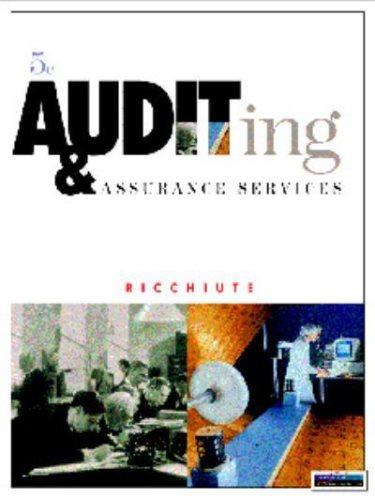Question
Yerba Industries is an all-equity firm whose stock has a beta of 0.50 and an expected return of 12.00 %. Suppose it issues new risk-free
Yerba Industries is an all-equity firm whose stock has a beta of 0.50 and an expected return of 12.00 %. Suppose it issues new risk-free debt with a 5.50 % yield and repurchases 60 % of their stock. Assume perfect capital markets. a. What is the beta of Yerba stock after this transaction? b. What is the expected return of Yerba stock after this transaction? Suppose that prior to this transaction, Yerba expected earnings per share this coming year of $ 3.50, with a forward P/E ratio (that is, the share price divided by the expected earnings for the coming year) of 9. c. What is Yerba's expected earnings per share after this transaction? Does this change benefit the shareholder? Explain. d. What is Yerba's forward P/E ratio after this transaction? Is this change in the P/E ratio reasonable? Explain.
a. What is the beta of Yerba stock after this transaction?
The beta of Yerba stock after this transaction is
nothing.
(Round to two decimal places.)
b. What is the expected return of Yerba stock after this transaction?
The expected return of Yerba stock after this transaction is
nothing%.
(Round to two decimal places.)
Suppose that prior to this transaction, Yerba expected earnings per share this coming year of
$ 3.50$3.50,
with a forward P/E ratio (that is, the share price divided by the expected earnings for the coming year) of
99.
c. What is Yerba's expected earnings per share after this transaction? Does this change benefit the shareholder? Explain.
If prior to the transaction, Yerba expected earnings per share this coming year of
$ 3.50$3.50,
with a forward P/E ratio of
99,
Yerba's expected earnings per share after this transaction is
$nothing.
(Round to the nearest cent.)
Does this change benefit the shareholder? Explain. (Select the best choice below.)
A.
It does benefit shareholders because their cash flows have gone up and everything else is unchanged.
B.
It does not benefit shareholders because the risk of holding equity has increased.
C.
You cannot tell. It depends on shareholders risk preferences. Cash flows are higher, but so is risk, some shareholders will be better off, some will be worse off.
D.
It does not benefit shareholders because if you take into account the shares they lost to the repurchase, their cash flows are actually the same.
d. What is Yerba's forward P/E ratio after this transaction? Is this change in the P/E ratio reasonable? Explain.
Yerba's forward P/E ratio after this transaction is
nothing.
(Round to two decimal places.)
Is this change in the P/E ratio reasonable? Explain. (Select the best choice below.)
A.
It is reasonable. P/E has gone down because risk has gone down.
B.
You cannot tell. It depends on shareholders' risk preferences. P/E has gone down, but risk has also changed, some shareholders will be better off, some will be worse off.
C.
It is reasonable. P/E has gone down because risk has gone up.
D.
It is not reasonable and reflects the value loss of the recapitalization.
Step by Step Solution
There are 3 Steps involved in it
Step: 1

Get Instant Access to Expert-Tailored Solutions
See step-by-step solutions with expert insights and AI powered tools for academic success
Step: 2

Step: 3

Ace Your Homework with AI
Get the answers you need in no time with our AI-driven, step-by-step assistance
Get Started


